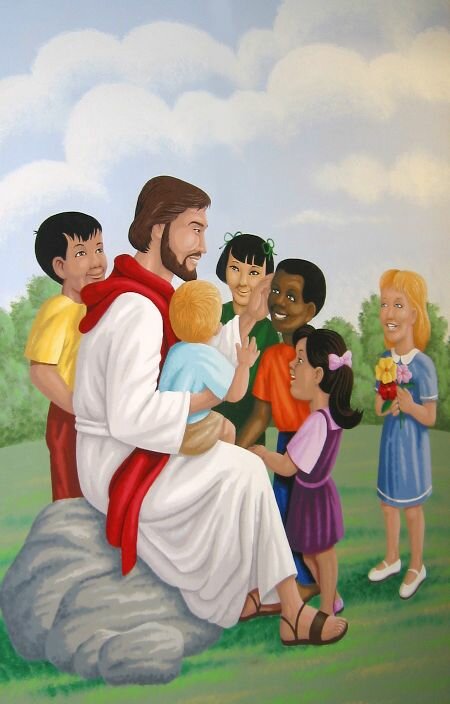The Shepherds and the Angels
 On this first day of December, as we approach Christmas Day, let us take a moment to reflect on how the announcement of Jesus' birth was proclaimed.
On this first day of December, as we approach Christmas Day, let us take a moment to reflect on how the announcement of Jesus' birth was proclaimed.
The shepherds of Jesus' day were very common men. They tended the flocks twenty-four a day, seven days a week. They dressed common, talked common and lived common. They were usually some distance from their homes, living among their flocks, often with just a cloak and rock or tree to lay against at night.
Jesus repeatedly used the parable of the shepherd throughout his ministry. He knew that his people were like lost sheep in a world full of danger. He knew he was coming to be the shepherd to the people of our world. What better way to proclaim his arrival then to the shepherds.
Luke 2:8-20 New International Version (NIV)
And there were shepherds living out in the fields nearby, keeping watch over their flocks at night. An angel of the Lord appeared to them, and the glory of the Lord shone around them, and they were terrified. But the angel said to them, "Do not be afraid. I bring you good news of great joy that will be for all the people. Today in the town of David a Savior has been born to you; he is Christ[a] the Lord. This will be a sign to you: You will find a baby wrapped in cloths and lying in a manger."
Suddenly a great company of the heavenly host appeared with the angel, praising God and saying, "Glory to God in the highest, and on earth peace to men on whom his favor rests."
When the angels had left them and gone into heaven, the shepherds said to one another, "Let's go to Bethlehem and see this thing that has happened, which the Lord has told us about."
So they hurried off and found Mary and Joseph, and the baby, who was lying in the manger. When they had seen him, they spread the word concerning what had been told them about this child, and all who heard it were amazed at what the shepherds said to them. But Mary treasured up all these things and pondered them in her heart. The shepherds returned, glorifying and praising God for all the things they had heard and seen, which were just as they had been told.
Footnotes:
Luke 2:11 Or Messiah. "The Christ" (Greek) and "the Messiah" (Hebrew) both mean "the Anointed One"; also in verse 26.









0 Comments:
Post a Comment
<< Home